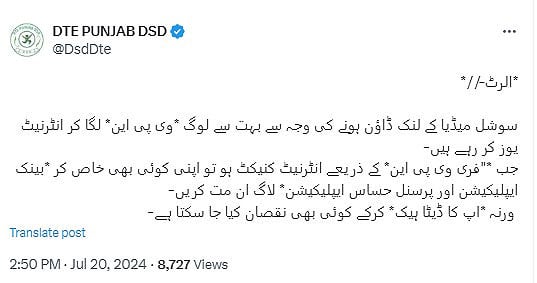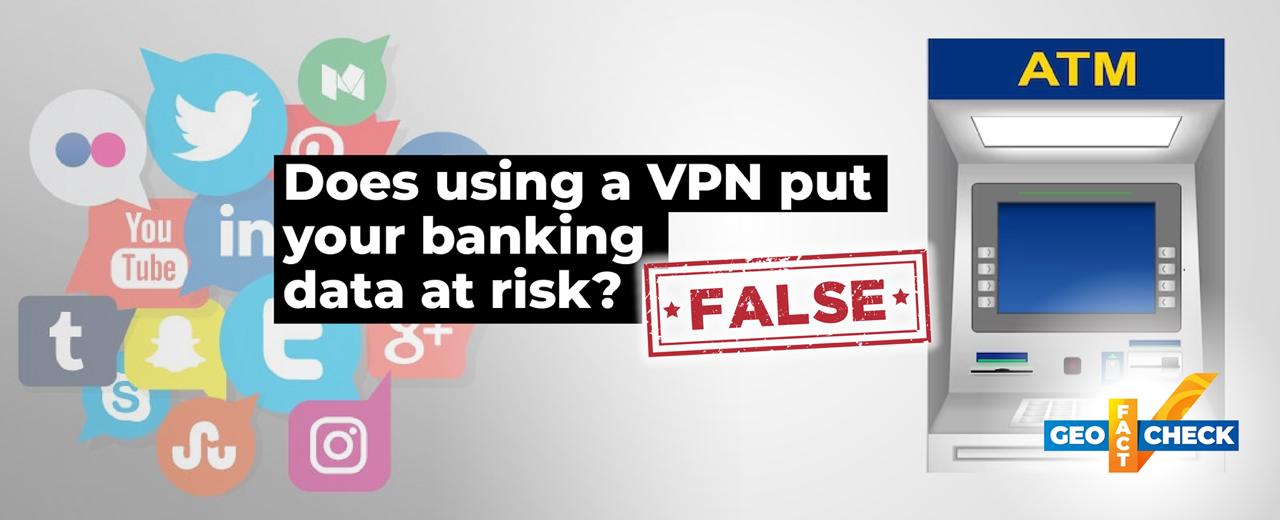Fact-check: Experts confirm VPNs do not put your banking data at risk

Viral posts on Pakistani social media claim that transferring and receiving funds in your bank account online while using a Virtual Private Network (VPN) is unsafe and exposes you to hacking.
The claim is incorrect.
Claim
“Alert,” writes a social media user on X, formerly known as Twitter, “Since many social media links are down in the country, people are using VPNs. When the VPN is on, do not log into your bank application or your personal data will be hacked.”
The post has been viewed nearly 9,000 times and liked over 100 times.

Similar claims also took off on Facebook.
Fact
Using a VPN while logging into your banking application online does not expose you to hacking, confirm digital and cybersecurity experts.
Asad Baig, the executive director and founder of Islamabad-based Media Matters for Democracy (MMfD), a non-profit that works for media literacy and development in Pakistan, told Geo Fact Check over the phone that the online claims are based on misconceptions about how VPNs work.
“In fact VPNs further improve the encryption process and do not lead to any leak of banking data,” Baig said.
He added that, to be on the safer side, it is better to download and use VPNs from reputable brands. “Now, where do you download VPNs from? The Play Store or Apple App Store? The applications available on these platforms have already undergone quality checks.”
Haroon Baloch, a digital rights activist and senior program manager at the Islamabad-based Bytes for All (B4A), a research organisation focusing on information technology, said that some “underrated VPNs” can be risky, adding that paid VPNs are generally more secure for online banking.
But he also noted that some VPNs might be free and can still be trusted if they are from known companies. “However, paying for your VPN is often a safer option,” he added.
The same was stated by Khawaja Mohammad Ali, a cybersecurity expert and former regional head of the government-run Federal Investigation Agency’s (FIA) cybercrime wing.
“Paid VPNs, while not immune to issues, generally offer better security features and privacy protections, making them a safer choice for sensitive activities like online banking,” he said via message. “Always opt for a reputable VPN provider and consider the level of security and privacy that aligns with your needs.”
Follow us on @GeoFactCheck. If our readers detect any errors, we encourage them to contact us at [email protected]





